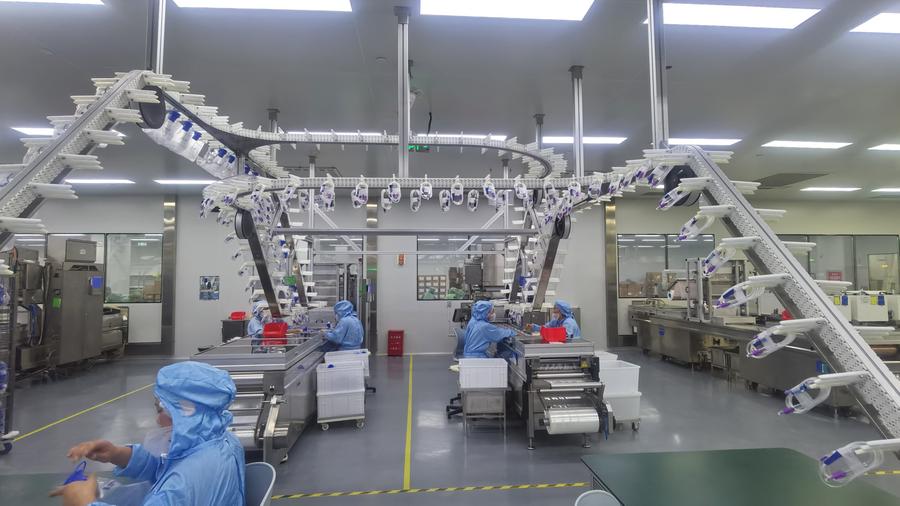German medical device company continues investment expansion in China with confidence

Workers are busy at the production line of Fresenius Kabi (Nanchang) Co., Ltd. in Nanchang, east China's Jiangxi Province, March 6, 2023. (Xinhua)
NANCHANG, April 2 (Xinhua) -- At a medical device manufacturing facility in Nanchang, capital of east China's Jiangxi Province, workers are fully immersed in production work, while automated equipment operates at peak efficiency to expedite the process.
The production schedule of the manufacturing facility, owned by Fresenius Kabi (Nanchang) Co., Ltd., spans until 2030, with each task meticulously allocated to specific months for completion, according to a staffer.
Christian Hauer, member of the management board of German healthcare conglomerate Fresenius Kabi and president of Fresenius Kabi MedTech, recently flew from Germany to Nanchang to visit the branch company and its factories. He expressed delight at the production efficiency and progress observed during his visit.
Based in Bad Homburg, a town near Frankfurt in Germany, Fresenius Kabi started investing in Nanchang in 2002. Over the past 22 years, the Nanchang subsidiary has been expanded five times, with the total investment reaching nearly 600 million yuan (about 84.56 million U.S. dollars).
Today, the Nanchang subsidiary is an important research and development (R&D) and production base of medical devices for Fresenius Kabi.
According to Hauer, the sound development momentum of the Chinese market and the country's favorable business environment have encouraged Fresenius Kabi to expand investment in China.
China's gross domestic product growth is among the highest in the world, making its market increasingly appealing. In particular, the accelerated growth of Chinese people's healthcare spending has unleashed consumption potential, Hauer noted.
Fresenius Kabi used to have two clinical nutrition device production bases, one in Europe and the other in Nanchang. "We have now decided to centralize everything about medical devices for clinical nutrition here in Nanchang because it's much more competitive," Hauer said.
During his visit, Hauer said he was impressed by the subsidiary's robust R&D group, boasting professional talents, high team morale and a strong commitment to their work, which reflects China's strong competitiveness in both manufacturing and R&D.
China's position as the world's second-largest market for medical equipment is another compelling factor for Fresenius Kabi to continue expansion, according to Hauer. Setting up factories in China can not only help Fresenius Kabi understand the needs of Chinese customers but also make it easier to guarantee product supply and complete the order, he explained.
In 2023, the subsidiary's main business revenue hit 536 million yuan, and the export value increased by 6.8 percent compared with 2022. Fresenius Kabi has witnessed a positive trajectory in its business operations in China, and Hauer said he is confident that this growth trend will be sustained in the future.
"China boasts a sound business environment with positive customer feedback," said Hauer, adding that he looks forward to more opportunities to boost Fresenius Kabi's business in China.

